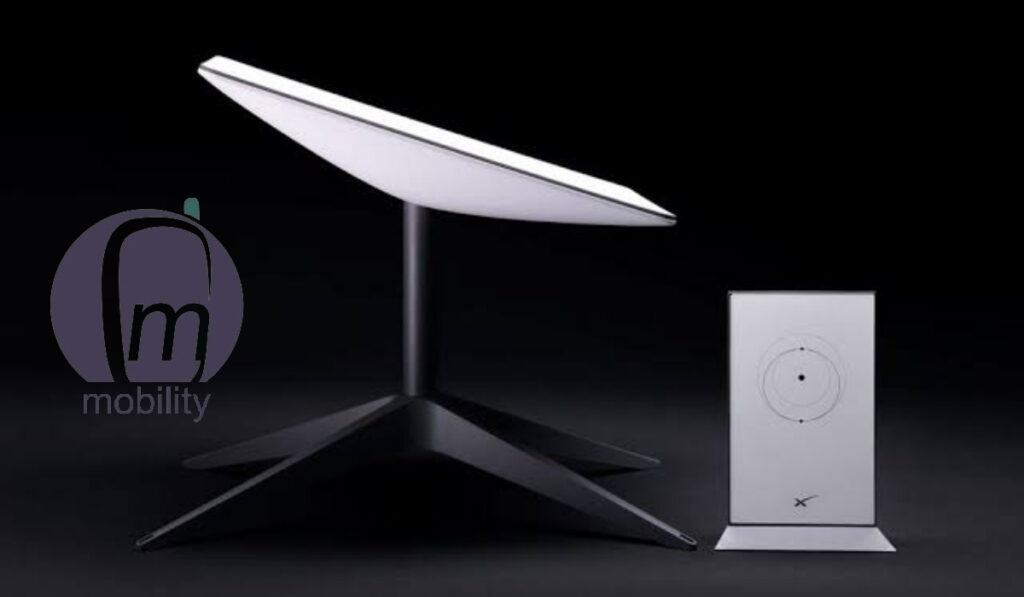By Abimbola Mohammed
Following the approval by Nigerian Communications Commission (NCC) for Starlink satellite to operate in Nigeria, some tech influencers in Nigeria have shared their experiences on how the internet device and services work, and the price they paid to get the product delivered.
Sharing their experiences on social media, it was also revealed that Nigeria is the first African country to use the device, joining other 46 countries that have access to the satellite internet services,
According to Starlink, users are expected to enjoy satellite internet services from single geostationary satellites that orbit the planet at 35,786 km. As a result, the round trip data time between the user and satellite, also known as latency, is high, making it nearly impossible not to support streaming, online gaming, video calls or other high data rate activities.
Fisayo Fosudo, a Finance & Tech reviewer, posted a video on his verified Twitter and Instagram, stating what its cost to order a Starlink device in Nigeria.
“Starlink is now available in Nigeria and we are the first African country to use their service joining 46 other countries that have its presence. Starlink claims its latency is 20 milliseconds, between 50-200mbps in Nigeria, but I paid $99 to preorder the device and the final amount was $488.93. However, if you are just buying it newly it should be around $600. The problem is that the website shows the price as N274,000 approximately, but the naira price is not accurate.
“It’s a reference price because your naira card will not work on the Starlink website. To purchase it, you will need a dollar card or your domiciliary accounts or services like Payday or Gotok, and if you are paying with black market rates, that will run up to N450,000, which is a lot of money,” he said.
He added that, for people to use the device, all they need to do is point the device to the sky and they will have fast internet.
In the same vein, Oscar Frank, a Tech Youtuber, shared his experience while trying to order for Starlink devices.
“I ordered Elon Musk’s Starlink at $587 which was roughly N435,000 as opposed to the N268,000 on the website. All thanks to the fact that you can only pay using your dollar card and you can only fund cards at black market exchange rate. The website also claims a N19, 260 monthly subscription fee, but that is not going to be the case when you use the dollar card to buy the subscription; you are going to end up paying over N30,000,” he said.
Izzi Boye, another Youtuber, said: “You can order for Starlink in Nigeria but there is a problem doing that. On the website it costs about N270,000 and about N19,000 for the monthly subsection, but you can’t pay with your Naira card. You need a dollar card to make the purchase. The N274,000 on the website is Central Bank of Nigeria (CBN) rate; it costs $600 depending on what rate you get your dollars – at least you will spend up to N400,000 to get Starlink in Nigeria. The order arrives in one or two weeks.”
Another review from a Youtuber with the name Lekki Explorer, who commented more on the speed, said: “Starlink starts to charge from data two weeks after you must have started using the device, which doesn’t come with one full month subscription. It has a free 75 ft cable. At the initial installation, it took me five minute to get my system to connect with the device.”
He stated that speed can’t be compared with internet providers that serve locations in Nigeria with fibrotic cables, but when it comes to wireless, nothing comes close to Starlink speed currently.
“Starlink is unlimited, making it the best for now. There is no issue of congestion yet here in Nigeria; maybe when many companies or individuals start ordering, it may change,” he said.
He said people who use apps like Zoom, gaming, and other video conference apps may experience 60-90 seconds disconnection within 90 minutes while using Starlink, whereas people streaming or doing other regular things don’t have to worry about such.
Starlink is a constellation of thousands of satellites that orbit the planet much closer to earth, at about 550km, and cover the entire globe. Because Starlink satellites are in a low orbit, latency is significantly lower-around 20 ms vs 600+ ms.






Comment
No comments found.